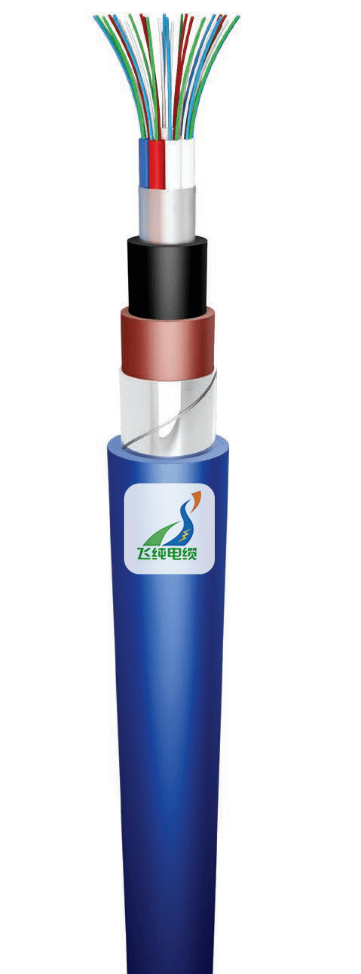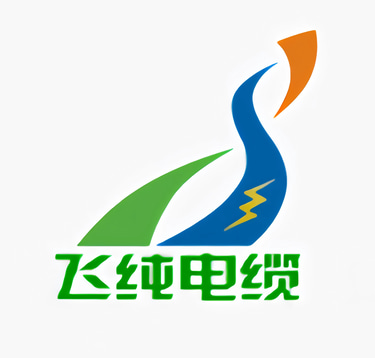Type YOTKGtsFtlyn 2-144 fibers Mining Cable , for horizontal installations, armored
This horizontal SWA armored Cat6 fiber optic signal cable is a high-performance signal transmission method with strong anti-interference ability. It can be used in open-pit mines or in the wild. It has high corrosion resistance and UV resistance, and adds multiple protections to the originally fragile optical fiber to prevent damage.


Type YOTKGtsFtlyn 2-144 Fibers Mining Cable for Horizontal Installations, Armoured – a high-performance Cat6 fiber optic cable engineered for the harsh conditions of mining environments.
Specifically designed for horizontal deployments in open-pit and outdoor mining sites, this cable offers robust signal transmission with excellent resistance to UV light, corrosion, and mechanical stresses.
Construction and Materials
Optical Fibers:
Compliant with ITU-T G.652D standards, the cable contains single-mode fibers that are color-coded according to IEC 60304 (red, green, blue, white, violet, orange, grey, yellow, brown, pink, black, turquoise) for easy identification.Tube and Insert Identification:
The cable features multiple loose tubes: the first tube is red, the second is blue, and additional tubes are natural in color. Inserts, if used, are marked in black.Central Reinforcement:
A 2.5 mm FRP rod is centrally placed to provide essential mechanical strength.Loose Tubes and Fillers:
Optical fibers are grouped in loose tubes made of thermoplastic material (PBT) with an approximate diameter of 2.4 mm per tube. A thixotropic gel filler secures the fibers within the tubes.Moisture Protection:
A dry swelling tape is applied to seal the cable medium, effectively preventing water ingress.Inner Jacket:
An extruded PVC inner jacket in black (RAL 9005) with a nominal thickness of 1.4 mm offers additional protection to the cable’s core.Armouring:
The cable is armoured with painted steel tape (0.30 mm x 20 mm), which enhances resistance to mechanical impacts and environmental stress.Outer Jacket:
A self-extinguishing, extruded PVC outer jacket in blue, with an average thickness of 1.5 mm, provides a durable barrier against UV exposure, corrosion, and physical damage.
Performance Characteristics
Attenuation:
The fiber optic core exhibits low attenuation—≤ 0.5 dB/km at 1310 nm and ≤ 0.35 dB/km at 1550 nm—ensuring high-quality signal transmission.Mechanical Strength:
Designed with fully dielectric mediums and reinforced with a dielectric central element (with optional aramid fiber reinforcement), the cable withstands high longitudinal and transverse stresses.Dimensions and Flexibility:
Depending on the fiber count, the overall cable diameter ranges from approximately 15.1 mm (for 2-72 fiber configurations) to 19.8 mm (for 36-144 fiber configurations). Cable mass varies from 310 to 500 kg/km, with a dynamic bending radius as low as 230 mm (up to 400 mm static) for safe installation without damage.Temperature Range:
Transport/Storage: -40°C to +70°C
Installation: -15°C to +60°C
Operation: -40°C to +70°C
This wide temperature range makes the cable suitable for extreme mining conditions.
Applications
Horizontal Installations:
Ideal for connecting optoelectronic systems in open-pit mines and other horizontal mining environments.Rugged Environments:
High corrosion and UV resistance ensure reliable performance in exposed, outdoor conditions.High-Speed Communications:
Supports high-speed data, video, and other signals essential for intelligent mine automation and real-time monitoring.Versatile Deployment:
Suitable for both surface and underground installations, with robust protection against electromagnetic interference and mechanical stresses.
The Type YOTKGtsFtlyn 2-144 Fibers Mining Cable delivers reliable, high-speed communications in demanding mining environments, ensuring the seamless operation of intelligent and automated mine systems while offering long-term durability and performance.

Frequently Asked Questions (FAQ)
Q: What is the Type YOTKGtsFtlyn cable?
A: It is a high-performance, Cat6 fiber optic signal cable designed for horizontal installations in mining environments.
Q: What are the primary applications of this cable?
A: It is used for high-speed data, video, and signal transmission in open-pit mines and outdoor mining sites.
Q: Which optical fiber standard does this cable utilize?
A: It uses ITU-T G.652D compliant single-mode fibers (or fibers as specified in the attached documentation).
Q: How are the fibers identified within the cable?
A: Fibers are color-coded according to IEC 60304 (e.g., red, green, blue, white, violet, orange, grey, yellow, brown, pink, black, turquoise) for easy identification during installation and maintenance.
Q: How are the loose tubes identified?
A: The first tube is red, the second is blue, and additional tubes are in natural color. Inserts, if present, are marked in black.
Q: What is the purpose of the central reinforcement element?
A: A 2.5 mm FRP (Fiber Reinforced Polymer) rod is centrally placed to provide mechanical strength and maintain cable integrity.
Q: What material are the loose tubes made from?
A: They are made of a thermoplastic material (PBT) with an approximate diameter of 2.4 mm.
Q: How are the fibers secured within each tube?
A: The fibers are protected by a thixotropic gel filler, which minimizes movement and damage during installation.
Q: How does the cable prevent water ingress?
A: A dry swelling (expanding) tape is applied as a moisture barrier, protecting the cable's internal components from water penetration.
Q: What material is used for the inner jacket?
A: The inner jacket is extruded PVC (polwinit) in black (RAL 9005) with a nominal thickness of about 1.4 mm.
Q: What type of armouring is used in the cable?
A: It is armoured with painted steel tape (0.30 mm x 20 mm) for added mechanical protection.
Q: What is the material and color of the outer jacket?
A: The outer jacket is made of self-extinguishing, extruded PVC in blue, with an average thickness of 1.5 mm.
Q: What are the fiber attenuation specifications?
A: The attenuation is ≤ 0.5 dB/km at 1310 nm and ≤ 0.35 dB/km at 1550 nm, ensuring low signal loss over long distances.
Q: How does the cable minimize electromagnetic interference (EMI)?
A: Its fully dielectric design and robust armouring help shield the fibers from external EMI, ensuring clear signal transmission.
Q: What is the minimum bending radius during installation?
A: The dynamic minimum bending radius is approximately 230–300 mm, while the static bending radius during operation can be up to 340–400 mm, depending on the cable configuration.
Q: What operating temperature range does this cable support?
A: It can operate between -40°C and +70°C, making it suitable for extreme mining environments.
Q: What is the recommended installation temperature range?
A: The cable is designed for installation between -15°C and +60°C.
Q: How does the cable’s design benefit horizontal installations?
A: Its flexible, armoured construction and moisture protection make it ideal for long, horizontal runs in open-pit and outdoor mining settings.
Q: How many fiber counts are available in this cable series?
A: Configurations range from 2 fibers up to 144 fibers to accommodate various network capacities.
Q: What is the overall diameter of the cable?
A: The overall diameter varies by configuration, e.g., around 15.1 mm for lower fiber counts and up to 19.8 mm for higher fiber counts.
Q: What is the cable’s weight per kilometer?
A: Depending on the configuration, the cable weighs between 310 and 500 kg/km.
Q: How does the cable’s armouring improve its durability?
A: The steel tape armouring protects against mechanical impacts and stresses, ensuring the cable remains intact in rugged mining environments.
Q: How is the cable protected against UV and corrosion?
A: The materials used in the outer jacket provide high UV resistance and corrosion resistance, making the cable suitable for outdoor use.
Q: Can this cable be installed both on the surface and underground?
A: Yes, it is versatile enough for surface installations in open-pit mines and underground deployments.
Q: What benefits does low fiber attenuation offer in mining applications?
A: Low attenuation ensures high-quality, long-distance signal transmission, which is critical for real-time monitoring and automation systems.
Q: How does the thixotropic gel filler contribute to the cable’s performance?
A: It stabilizes the optical fibers within each tube, reducing microbending losses and protecting against mechanical shocks.
Q: Why is the swelling tape moisture barrier important?
A: It expands to form a tight seal, preventing moisture from reaching the fibers and degrading signal quality.
Q: What kind of mechanical loads can the cable withstand?
A: The cable is engineered to handle high longitudinal and transverse loads, with a maximum tensile strength of up to 2500–1250 N depending on the configuration.
Q: How does the cable ensure reliable performance in harsh mining conditions?
A: Its robust armoured construction, effective moisture sealing, and low attenuation properties provide consistent, high-speed data transmission in adverse environments.
Q: What maintenance is recommended for this cable in mining installations?
A: Regular inspections for physical damage, moisture ingress, and adherence to proper bending guidelines are essential to ensure long-term performance.
Q: How does this cable support intelligent mine automation?
A: Its high-speed, low-loss data transmission supports real-time monitoring, video surveillance, and control systems, which are critical for modern mine automation.
Q: Is this cable compliant with industry standards?
A: Yes, it meets the required specifications for mining fiber optic cables, ensuring reliability and performance in demanding applications.






Type YOTKGtsFtlyn 2-144 Fibers Mining Cable
An advanced, armored Cat6 fiber optic cable designed for horizontal installations in harsh mining environments. Engineered for high-speed, low-loss data transmission, this cable supports real-time video, audio, and control signals essential for intelligent mine automation. Its robust design features: Premium Optical Fibers: ITU-T G.652D compliant fibers with IEC 60304 color-coding for easy identification. Reinforced Construction: A 2.5 mm FRP central rod, thixotropic gel fillers, and a dry swelling tape moisture barrier protect against mechanical stress and water ingress. Armoured Protection: Painted steel tape armouring combined with a durable blue, self-extinguishing PVC outer jacket ensures excellent UV, corrosion, and impact resistance. Optimized Performance: Low attenuation (≤ 0.5 dB/km @1310 nm, ≤ 0.35 dB/km @1550 nm) and a wide operating temperature range (-40°C to +70°C) guarantee reliable operation even in extreme conditions. Ideal for both open-pit and underground applications, this cable meets the rigorous demands of modern mining telecommunications and automation systems, ensuring safe, efficient, and high-quality communications.
6/30/20216 min read
